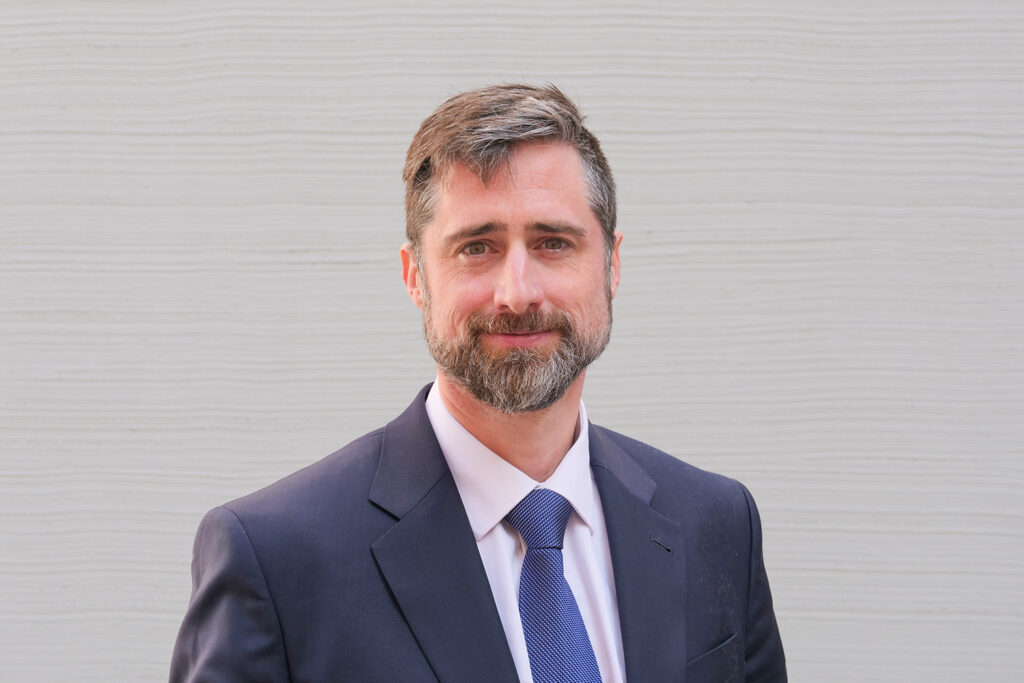New Head of Secure Systems Department

New Head of Department “Secure Systems” at the Agentur für Innovation in der Cybersicherheit GmbH (Cyberagentur). Prof. Dr. Matthias Kranz moved from the University of Passau to Halle (Saale) on 15 March 2024.
On March 15, 2024, Professor Dr. Matthias Kranz (born 1977) took over as Head of the “Secure Systems” department at the Agentur für Innovation in der Cybersicherheit (Cyberagentur). The professor is moving from the Chair of Computer Science with a focus on Embedded Systems at the University of Passau to the Agentur für Innovation in der Cybersicherheit GmbH.
As head of the “Secure Systems” department, Matthias Kranz contributes his expertise as a professor in the Department of Computer Science with a focus on Embedded Systems at the University of Passau. In this position, he continues the work of his predecessor Prof. Dr. Tobias Eggendorfer, who was appointed to the chair at the Technical University of Ingolstadt last summer. Cybersecurity and security of networked applications followed.
His area of responsibility includes current and future research projects on the topic of secure systems, which focus on cyber security in the federal administration, protection of critical infrastructures, cyber security in difficult environments, secure hardware and supply chains, and interoperability.
“I am looking forward to the new challenge at the Cyberagentur: the people and projects that I will be able to support,” explains Prof. Dr. Kranz. “Important projects, such as the KRITIS competition or the trustworthy IT ecosystem, must be continued and new ones launched. In this constellation of three research departments, I am excited to work together with colleagues from the Secure Society and Key Technologies departments on an interdisciplinary basis and develop new research questions.”
“With Prof. Dr. Matthias Kranz, we are once again gaining an expert for our ‘Secure Systems’ department who will enrich our work on the research contracts with his expertise. I am delighted personally and for the team that he has accepted the call to the Saale,” adds the Cyberagentur’s Research Director, Prof. Dr. Christian Hummert.
Before joining the Cyberagentur, Prof. Dr. Kranz conducted research on human-machine interaction, mobile embedded systems, the Internet of Things and novel user interfaces for post-desktop systems.
He studied computer science at the Technical University of Munich and moved to the Ludwig Maximilian University of Munich for his doctorate on “Perceptive User Interfaces and Engineering in the Field of Ubiquitous Computing”. Matthias Kranz then worked as a scientist at the German Aerospace Center in Oberpfaffenhofen.
From July 2009 to August 2012, Kranz was a junior professor in the Department of Distributed Multimodal Information Processing at the Faculty of Electrical Engineering and Information Technology at the Technical University of Munich. He was then Associate Professor of Pervasive and Mobile Computing in the Department for Computer Science, Electrical and Space Engineering at Luleå University of Technology, Sweden, until January 2013.
In February 2013, he took over the Chair of Computer Science with a focus on Embedded Systems at the University of Passau.
Matthias Kranz is a reservist with the rank of Lieutenant Colonel (former) at the Bundeswehr Digitization Centre in Bonn and Euskirchen. “I will be able to contribute my practical experience as a reservist in the German Armed Forces to my new job, especially when it comes to ‘safety in difficult environments’.”
Weitere Informationen: https://www.cyberagentur.de/projekte/
